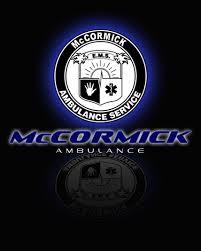McCormick in Breach of Torrance’s Emergency Services Contract
 Updated data provided by the City reveals that McCormick is operating in breach of the emergency services contract they secured with Torrance after a controversial decision by the City Council to award them the contract last November. That decision led to locally owned Gerber Ambulance, the previous emergency transport provider for the City, recently closing it doors after nearly three decades serving the residents of Torrance.
Updated data provided by the City reveals that McCormick is operating in breach of the emergency services contract they secured with Torrance after a controversial decision by the City Council to award them the contract last November. That decision led to locally owned Gerber Ambulance, the previous emergency transport provider for the City, recently closing it doors after nearly three decades serving the residents of Torrance.
McCormick was the only evaluated bidder for the contract that committed to meeting Torrance’s requirement of an 8 minute 92% of the time emergency response. City staff cited that commitment by McCormick as a key differentiating factor in scoring McCormick higher than the other offerors. After several months of evaluated performance it appears, unfortunately, that McCormick is not living up to that commitment.
The data provided by the City included 775 completed “911” emergency calls received in the month of January 2015. Of those 775 calls, McCormick had a response time above the 8 minute requirement on 103 of them for an on-time response rate of 86.7%. Of those 103 late responses, 13 of them took over 15 minutes. One call in particular took McCormick an astonishing 54 minutes to respond. The data set includes 60 calls where response time data was not provided. If you assume McCormick was on-time for all of those calls, the on-time percentage only rises to 87.7% – significantly below the 92% requirement. Data was also requested for the month of February, but it was not provided by the City.
As a reference point, Torrance Fire Department (TFD) submitted a notice of default letter against Gerber ambulance for failing to meet the response time requirement. In that letter, TFD cited Gerber’s average response time of 88.9% over nearly a two year period as cause for their default.
Gerber was also blasted by public officials for failing to implement a CAD to CAD interface link with Torrance’s computer aided dispatch system. Councilman Weideman cited that issue as a key reason for ruling in favor of McCormick and was quoted as saying, “If the customer says ‘You have to integrate with our systems as part of the contract,’ you have to do it.” McCormick is also now in breach of that same requirement as City officials confirmed they have yet to complete the interface even though they were contractually required to do so within the first 90 days of the contract.
Gerber was able to achieve a 88.9% response rate even though it was standard practice for them to be called “code 2” (no lights and sirens) to the scene almost exclusively. Rumors have persisted in the community that TFD has allowed McCormick to respond “code 3” (lights and sirens) more often in order to aid their response times. Torrance stopped short of providing information that would clarify the issue, despite a public records request specifically requesting the data, by responding that they do not keep statistics on whether the ambulance is called Code 2 or Code 3.
McCormick’s continued non-compliance to the contract leaves the City in an extremely awkward position. Many councilmembers cited Gerber’s non-compliance with the contract as justification for making the award to McCormick. Councilman Rizzo even suggested to one blogger that Gerber’s non-compliance opened the City up to huge liabilities. Given those concerns previously aired toward Gerber, what should the Council do now that McCormick is in breach of the contract for the very same reasons and has response times that are worse than Gerber’s?
